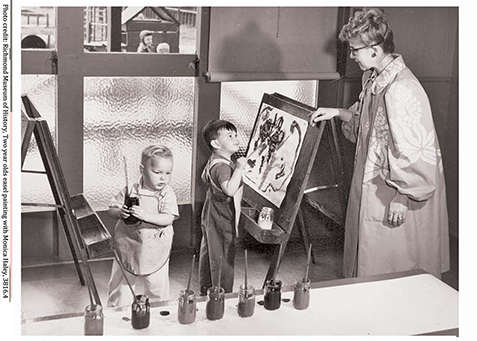 |
| Retreived from: http://www.piperreport.com/wp-content/uploads/2012/09/Medicaid-Expansion-Arguments-For-and-Against.jpg |
The argument against corporate childcare holds the view that the need for profits in these centres may outweigh the need for quality childcare in the minds of the management of corporate childcare centres. The corporate childcare centres rely on the good market value of their business to keep them afloat. Therefore, if centres are not turning over a good profit, their business can collapse. A recent example of this is the collapse of ABC which is discussed in an article here.
Accountability for public dollars is also an issue. Significant public funding is necessary to ensure that programs are both high quality and accessible to parents. But funding has to be well directed to be effective; this means ensuring that it all goes to children, not profits. This is touched on in an article here. This is essentially the heart of the political issue caused by corporate childcare as the government is funding businesses that are using these funds for profit and not necessarily for the children in their care.
Friendly and McCain (2008) pose an interesting question which shows the view of the argument against corporate childcare; "are preschoolers primarily consumers to be wooed for their profitability, or are they worthy of the same kind of interest and support we devote to their older siblings in the public education and university systems?”.
However, the argument for corporate childcare disagrees with this view, and suggests that the profits that are made through these centres is a positive thing as it enables more money to be put back into the centres. This suggests that the quality of centres is increased as profits are increased.
An article here suggests that profit may not be the only goal that investors have in mind. However these investors did make a large profit out of their business and there is no evidence in this article that any of these profits were put back into the early childhood centres.
I found a clip on youtube which shows the views of corporate investors in education. Though this clip is not based in New Zealand, I feel that the views that are expressed would be similar to those that are held by corporate investors in New Zealand.
The investors seem to be focussed on results, economic benefits, and ensuring children are ‘prepared’ to succeed. This clip suggests that the investment of businesses into early childhood is a positive thing that will have lasting repercussions for society.
An article here touches on both sides of the argument.
Conclusion
After researching this topic I feel that corporate childcare is not necessarily a positive movement for early childhood education. The argument for corporate childcare seems to suggest that turning early childhood centres into profitable businesses is positive, because the profits can be used to create quality childcare. However, much of the evidence shows that this is not happening, and that the corporate centres are instead focussed on creating profit over focussing on creating quality environments. I feel that the view expressed in the picture that I posted in my introduction does show the way corporate investors view children. I feel that the push from the government for higher participation in early childhood should not be abused as an opportunity to make money by selling the ‘learning experience’. I feel that the government should not be paying for these businesses to flourish.






